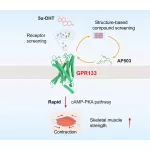A widely used antibiotic for treating infectious diarrhea may also be effective in managing a specific type of inflammatory bowel disease (IBD), according to a groundbreaking new study published in the Journal of Crohn’s and Colitis.
Potential Breakthrough in IBD Treatment
The study revealed that vancomycin, a commonly prescribed antibiotic, could help patients suffering from IBD associated with primary sclerosing cholangitis (PSC)—a severe autoimmune liver disease with no known cure. Researchers from the University of Birmingham conducted the study, which showed promising results. Notably, four in five participants achieved remission after undergoing treatment with the drug.
New Hope for Patients Resistant to Other Treatments
The findings are particularly significant as many of the study’s participants had previously not responded to conventional IBD treatments. PSC and IBD are closely linked, with most individuals diagnosed with PSC developing IBD, while up to 14% of those with IBD also develop PSC. This combination increases the risk of severe complications, including colon surgery, liver cancer, and the need for liver transplants.
Dr. Mohammed Nabil Quraishi, corresponding author of the study and researcher at the University of Birmingham, highlighted the importance of these results. “Our findings suggest that vancomycin could offer a new therapeutic option for patients with this challenging combination of IBD and autoimmune liver disease. While these results are preliminary, they provide a strong foundation for further research,” he said.
Clinical Trial Results
In the trial, patients were administered oral vancomycin for four weeks and monitored for an additional four weeks after stopping the treatment. By the end of the initial four-week treatment period, 80% of participants had achieved clinical remission, and 100% exhibited mucosal healing. However, once the treatment was discontinued, symptoms returned, indicating that ongoing therapy may be required for long-term benefits.
The study also found that vancomycin induced changes in certain bile acids, prompting further investigations into how these changes could be leveraged to develop improved treatments for PSC-IBD.
Next Steps: Larger Trials Needed
Dr. Palak Trivedi, Associate Professor and Honorary Consultant Hepatologist at the University of Birmingham and senior author of the study, emphasized the need for further research. “We are now preparing applications for a randomized controlled trial to determine the therapeutic effects of vancomycin. This next phase of research is crucial to understanding the full potential of vancomycin in PSC-IBD treatment,” he explained.
The promising results from this study provide a strong case for more extensive trials to confirm vancomycin’s effectiveness and safety in treating IBD associated with PSC. If future research supports these findings, vancomycin could become a game-changing treatment for patients who currently have limited options.
Disclaimer:
This article is for informational purposes only and does not constitute medical advice. The study findings are preliminary, and vancomycin should not be used as a treatment for PSC-IBD without medical supervision. Patients should consult their healthcare providers before considering any changes to their treatment plans.











